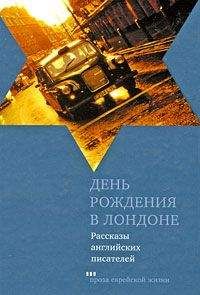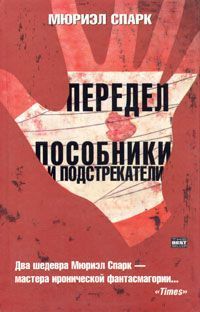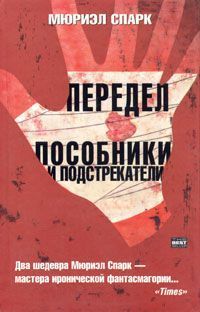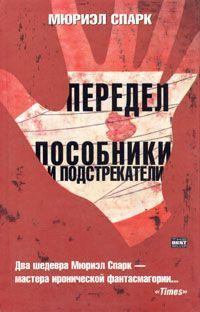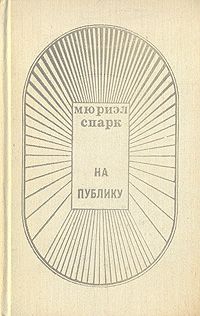Мюриэль Спарк - Английский язык с Мюриэль Спарк (рассказы)
"Didn’t you know that when you married him (разве вы этого не знали, когда выходили за него замуж)? I should have thought it would have been obvious (я думаю, это было очевидно; obvious — явный, очевидный)."
She looked at me again (она посмотрела на меня снова). "I had not studied psychology at that time (я не изучала психологию в то время)," she said.
I thought, neither had I (я подумала, что и я не изучала).
We were silent for the third turn about the lake (мы молчали: «были молчаливы» во время нашего третьего круга: «оборота» вокруг озера).
Then she said (затем она сказала), "Well, I was telling you how I came to study psychology and practise it (ну, я говорила вам, как я начала изучать психологию и стала практиковать). My husband had this breakdown (у моего мужа был тот упадок сил) after his sister went away (после того, как уехала его сестра). He had delusions (у него были галлюцинации; delusion— обман, иллюзия, мания, бред). He kept imagining he saw eyes (он продолжал воображать, что видит глаза) looking at him everywhere (смотрящие на него везде). He still sees them from time to time (он до сих пор видит их, время от времени). But eyes, you see (но именно глаза, вы понимаете). That's significant (это очень важно; significant— знаменательный, важный, показательный). Unconsciously he felt he had blinded his sister (подсознательно он чувствовал, что он ослепил свою сестру). Because unconsciously he wanted to do so (потому, что бессознательно он хотел сделать это). He keeps confessing that he did so (он продолжает признаваться, что он сделал это; toconfess— признавать, сознаваться, исповедоваться)."
obvious ['ObvIqs] delusion [dI'lu: Z(q)n] confess [kqn'fes]
"Didn't you know that when you married him? I should have thought it would have been obvious."
She looked at me again. "I had not studied psychology at that time," she said.
I thought, neither had I.
We were silent for the third turn about the lake.
Then she said, "Well, I was telling you how I came to study psychology and practise it. My husband had this breakdown after his sister went away. He had delusions. He kept imagining he saw eyes looking at him everywhere. He still sees them from time to time. But eyes, you see. That's significant. Unconsciously he felt he had blinded his sister. Because unconsciously he wanted to do so. He keeps confessing that he did so."
"And attempted to forge the will (и попытался подделать завещание)?" I said (сказала я). She stopped (она остановилась).
"What are you saying (что вы говорите)?"
"Does he admit that he tried to forge his mother's will (он признает, что пытался подделать завещание матери)?"
"I haven't mentioned anything about a will (я не упоминала ничего о завещании; to mention — упоминать, ссылатьсяна)."
"Oh, I thought you had (о, я подумала, что упомянули)."
"But, in fact, that was his sister's accusation (но, на самом деле, в этом и обвиняла его сестра: «это и было обвинение его сестры»). What made you say that (что заставило вас сказать это)? How did you know (откуда вы знаете /об этом/)?"
"I must be psychic (я должно быть медиум; psychic— медиум, экстрасенс, парапсихологические явления)," I said.
forge [fO: G] will [wIl] anything ['enITIN]
"And attempted to forge the will?" I said. She stopped. "What are you saying?" "Does he admit that he tried to forge his mother's will?"
"I haven't mentioned anything about a will."
"Oh, I thought you had."
"But, in fact, that was his sister's accusation. What made you say that? How did you know?"
"I must be psychic," I said.
She took my arm (она взяла меня за руки). I had become a most endearing case history (я стала ее любимой историей болезни; endearing— милый, привлекательный, внушающий любовь, casehistory— история болезни).
"You must be psychic indeed (вы, должно быть, действительно медиум)," she said (сказала она). "You must tell me more about yourself (вы должны рассказать мне больше о себе). Well, that's the story of my taking up my present profession (вот, это история о том, как я занялась своей нынешней профессией; present— настоящий, нынешний, данный). When my husband started having these delusions (когда у моего мужа начали появляться эти галлюцинации) and making these confessions (и делать такие признания) I felt I had to understand the workings of the mind (я почувствовала, что я должна понимать рабочие механизмы: «функционирование» мозга). And I began to study them (и я начала изучать их). It has been fruitful (/изучение/ это было полезным: «плодоносным»;fruitful— плодородный, плодотворный, fruit— плод, фрукты). It has saved my own reason (благодаря этому, я сохранила собственный здравый смысл)."
endearing [In'dI(q)rIN] present ['prez(q)nt] fruitful ['fru: tf(q)l]
She took my arm. I had become a most endearing case history.
"You must be psychic indeed," she said. "You must tell me more about yourself. Well, that's the story of my taking up my present profession. When my husband started having these delusions and making these confessions I felt I had to understand the workings of the mind. And I began to study them. It has been fruitful. It has saved my own reason."
"Did it ever occur to you (вам когда-нибудь приходило в голову; tooccur— случаться, происходить, приходить на ум) that the sister's story might be true (что история сестры может быть правдой)?" I said. "Especially as he admits it (особенно если он признает это; toadmit— допускать, впускать)."
She took away her arm and said (она убрала свою руку и сказала), "Yes, I considered the possibility (да, я рассматривала эту возможность). I must admit I considered it well (я должна признать, что я рассматривала ее достаточно тщательно: «значительно»)."
She saw me watching her face (она увидела, что я наблюдаю за ее лицом). She looked as if she were pleading some personal excuse (она смотрела так, как будто бы умоляла о неком личном оправдании; toplead— выступать в суде, призывать, просить, умолять;excuse— извинение, оправдание, отговорка).
"Oh do (о, снимите)," she said, "please take off those glasses (пожалуйста, снимите эти очки)."
"Why don't you believe his own confession (почему вы не верите в его собственное признание)?"
might [maIt] plead [pli: d] excuse [Ik'skju: s]
"Did it ever occur to you that the sister's story might be true?" I said. "Especially as he admits it."
She took away her arm and said, "Yes, I considered the possibility. I must admit I considered it well."
She saw me watching her face. She looked as if she were pleading some personal excuse.
"Oh do," she said, "please take off those glasses."
"Why don't you believe his own confession?"
"I'm a psychiatrist and we seldom believe confessions (я психиатр, а мы редко верим в признания)." She looked at her watch (она посмотрела на свои часы) as if to suggest (как будто бы предполагая, что) I had started the whole conversation (/именно/ я начала весь этот разговор) and was boring her (и теперь надоедала ей).
I said, "He might have stopped seeing eyes (он возможно перестал бы видеть эти глаза) if you'd taken him at his word (если бы вы поверили ему на слово; to take smb. at his word — поверитькому-либонаслово)."
She shouted (она закричала; to shout— кричать, громко говорить, выкрикивать), "What are you saying (что вы говорите)? What are you thinking of (о чем это вы думаете)? He wanted to give a statement to the police (он хотел сделать заявление для полиции; statement— высказывание, заявление, показание), do you realize (вы понимаете, что)…"
"You know he's guilty (вы же знаете, что он виновен; guilty— виновный, повинный, преступный)," I said.
seldom ['seldqm] police [pq'li: s]
"I'm a psychiatrist and we seldom believe confessions." She looked at her watch as if to suggest I had started the whole conversation and was boring her.
I said, "He might have stopped seeing eyes if you'd taken him at his word."
She shouted, "What are you saying? What are you thinking of? He wanted to give a statement to the police, do you realise…"
"You know he's guilty," I said.
"As his wife (как его жена)," she said, "I know he's guilty (я знаю, что он виновен). But as a psychiatrist (но как психиатр) I must regard him as innocent (я должна считать его невиновным; toregard— рассматривать, считать, относиться). That's why I took up the subject (вот почему я приступила к этой теме)." She suddenly turned angry and shouted (она внезапно повернулась яростно и закричала; angry— сердитый, гневный, раздраженный), "You damned inquisitor (вы, чертова мучительница: «следователь»; damned— отвратительный, ужасный, адский, чертов), I've met your type before (я встречала /людей/ вашего типа раньше)."
I could hardly believe (я с трудом верила, что) she was shouting (она кричала), who previously had been so calm (она, которая до этого была такая спокойная; previously— предварительно, заранее, раньше).
"Oh, it's not my business (о, это совсем не мое дело)," I said, and took off my glasses (и сняла свои очки) to show willing (чтобы показать свое расположение).
I think it was then she recognised me (я думаю, что только тогда она узнала меня).
type [taIp] previously ['pri: vIqslI] business ['bIznIs]
"As his wife," she said, "I know he's guilty. But as a psychiatrist I must regard him as innocent. That's why I took up the subject." She suddenly turned angry and shouted, "You damned inquisitor, I've met your type before."
I could hardly believe she was shouting, who previously had been so calm. "Oh, it's not my business," I said, and took off my glasses to show willing.
I think it was then she recognised me.
Черная Мадонна
The Black Madonna
When the Black Madonna (когда Черная Мадонна) was installed (была установлена; to install— вводить в должность, устраивать, помещать) in the Church of the Sacred Heart (в церкви Святого Сердца; sacred— священный) the Bishop himself came to consecrate it (сам епископ приехал, чтобы освятить ее). His long purple train (его длинный багряный шлейф) was upheld (держали: «поддерживался»; touphold— поддерживать) by the two curliest of the choir (два самых кудрявых /мальчика/ из хора; curly(curlier,the curliest) — вьющийся, волнистый, choir— хор певчих, церковный хор). The day was favoured suddenly (день был освещен: «одарен» внезапно; to favour— благоволить, выказывать предпочтение) with thin October sunlight (тусклым октябрьским солнечным лучом: «солнечным светом»; thin— тонкий, худой, слабый) as he crossed the courtyard (когда он пересек внутренний двор; to cross— пересекать, переходить) from the presbytery to the church (от дома священника к церкви; presbytery— часть церкви, где помещается алтарь; дом католического священника), as the procession followed him (тогда как процессия следовала за ним; to follow— следовать, сопровождать) chanting the Litany of the Saints (распевая литанию святых; to chant— говорить или читать нараспев) five priests (пять священников) in vestments of white heavy silk (в облачениях: «ризах» из белого тяжелого шелка) interwoven with glinting threads (затканного блестящими нитями;to interwove— переплетать, вплетать), four lay officials (четверо мирских официальных лиц; lay— светский, не духовный) with straight red robes (в прямого покроя красных мантиях), then the confraternities (затем /шли/ братства /монахов/) and the tangled columns of the Mothers' Union (и смешанные колонны Союза матерей; Mothers'Union— христианская организация, выступающая за семейные ценности).
